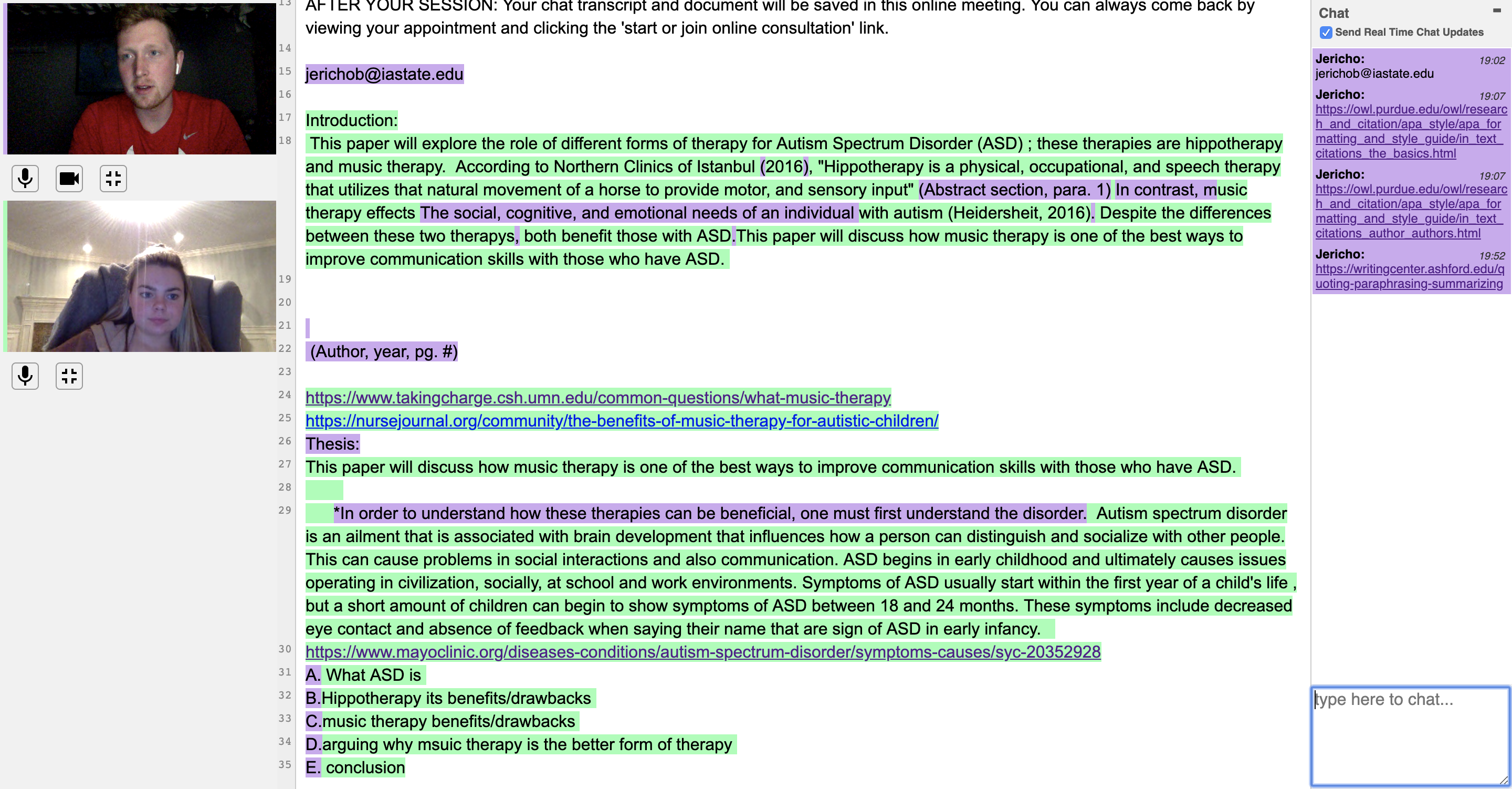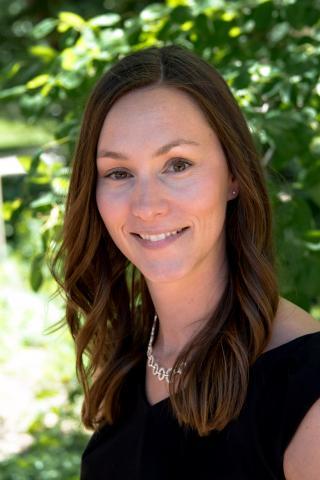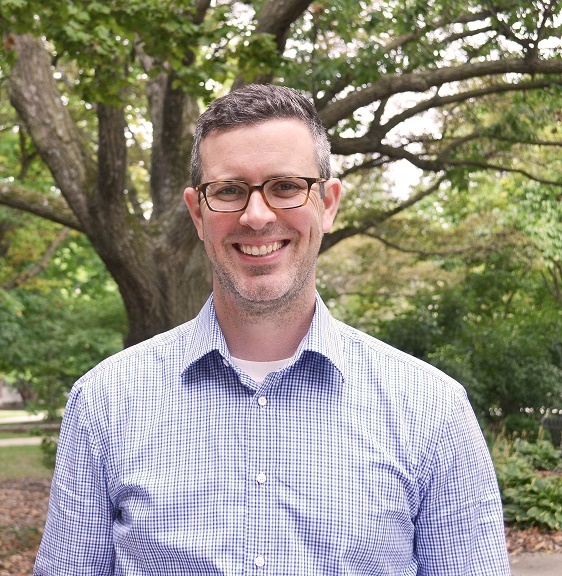AMES, Iowa — There is a misconception that today’s college students are so adept at using technology that any shift online will be easy for them.

Jericho Baker, senior in English and communication consultant for
the Writing and Media Center, works with students on their essays
online. Photo provided by Joseph Cheatle.
Beyond the logistical issues of migrating more than 6,000 courses online for the remainder of the spring semester, Iowa State University has also responded with academic support for students navigating this new learning environment.
In the first week of online instruction at Iowa State, students, faculty and staff spent the equivalent of one year using the video-conferencing platform WebEx for school and work, according to Information Technology Services.
Those thousands of hours included tutoring, writing consultations, academic coaching and more provided by the Academic Success Center and the Writing and Media Center.
“There is something for everyone that needs help,” said Joseph Cheatle, director of the Writing and Media Center.
From face-to-face to screen-to-screen

Katie Whipple
Face-to-face work is the foundation of both centers. The format has changed, but the services have not.
“We know that the person-to-person connection is very important not only in the learning process but also in finding a sense of belonging at Iowa State,” said Katie Whipple, director of the Academic Success Center. “This has really been a big change for all of us. How can there still be a personal connection even though people are meeting electronically?”
It's all about communication and flexibility.
Practices that were already in place to work with distance learners and international students have proven helpful for this shift online. Video and audio conferencing through WebEx, as well as document sharing through Google Docs and CyBox have eased the transition. Both centers are flexible with students who don’t have reliable, consistent access to the internet and may need to work at different times from staff.
“Writing centers get branded as only writing, but most think of ourselves as communication centers,” Cheatle said.
The Writing and Media Center helps students with all forms of written, oral, visual or electronic communication – from writing an essay to editing a video to preparing a cover letter.
“For writing centers, this is something we’re in a really good position to handle because most writing centers already provide online services, including ours,” Cheatle said. “It’s not a cold shift for us.
“We’re seeing that especially now – in all of the responses to COVID-19 – being able to communicate effectively is an important component of our lives.”

Joseph Cheatle
Similarly, the Academic Success Center’s goal is to help students with more than a sole hurdle in a course. Before this migration online, one of the biggest issues that ASC staff worked on with students was time management. Now, that skill is more important than ever.
Support goes beyond one-off problems
The Academic Success Center provides academic coaching, Supplemental Instruction and Tutoring Services.
Academic coaching helps students with time management, test preparation and more. The center launched “Coaches’ Corner” last week, a new series of weekly videos in which academic coaches will discuss academic skills needed during this time. Supplemental Instruction offers group study sessions for a variety of traditionally difficult courses. SI is facilitated by a trained peer leader who holds 50-minute interactive sessions three times per week. Tutoring Services involves personalized, small-group learning for students who need extra help with a course.
“We want students to not just get help for that calculus or biology class, but to develop overarching learning skills while they’re getting support for specific content,” Whipple said. “Under normal circumstances, our goal is to help students learn how to learn. We don’t see that changing at all, only how we deliver it.”
Both Cheatle and Whipple emphasized that their services are for all students, and encouraged students to reach out even if they feel confident during this transition.
“We try to dispel that misconception a lot,” Whipple said. “Our data show that we serve students from a range of GPAs and academic success backgrounds. We have some really high achievers who want to make sure they’re getting an A in a course, and we serve students who are struggling, and every student in between.”
The commitment to students’ academic success during this atypical semester has also ensured continued employment for the Academic Success Center’s 300 student employees and the Writing and Media Center’s 50 student employees.
“Everyone is being patient,” Whipple said. “We’re only in week three, and I think students are still trying to get their footing under them. The message we want to convey right now is: We’re here. If students are not sure how to navigate this, we’re here to help.”